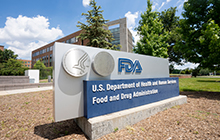 As we kick off 2024, we reflect on regulatory developments in the biologics and biosimilars space in 2023. Below are some of the top regulatory developments from 2023.
As we kick off 2024, we reflect on regulatory developments in the biologics and biosimilars space in 2023. Below are some of the top regulatory developments from 2023.
- FDA Approvals
In 2023, there were 23 FDA approvals of Biologic License Applications, including for Vertex’s CASGEVY and Bluebird’s LYFGENIA, the first cell-based gene therapies for the treatment of sickle cell disease.
There were also 5 FDA approvals of biosimilar products, including AVZIZ (bevacizumab-tnjn) (approved December 2023, WEZLANA (ustekinumab-auub) (approved October 2023), TOFIDENCE (tocilizumab-bavi) (approved September 2023), TYRUKO (natalizumab-sztn) (approved August 2023), and YUFLYMA (adalimumab-aaty) (approved May 2023).
The approval of Amgen’s WEZLANA (ustekinumab-auub) as biosimilar to Janssen’s STELARA (ustekinumab) is noteworthy given that it received designation as interchangeable. WEZLANA is the first product to be approved as a biosimilar to STELARA. Janssen and Amgen settled their BPCIA litigation regarding Amgen’s ustekinumab biosimilar product in May 2023.
The licensure and marketing of WEZLANA could affect negotiations with CMS regarding Medicare pricing for STELARA under the Inflation Reduction Act’s Drug Price Negotiation Program. As we covered previously, STELARA was one of the 10 drugs selected by CMS for the first year of IRA Drug Price Negotiations, and Janssen (along with every other manufacturer whose drugs were selected for the Program) has agreed to participate in the Program to “negotiate” a “maximum fair price” for their respective selected drugs.
Depending on its timing, the future launch of WEZLANA could cause STELARA to be “deselected” from the Program before a “maximum fair price” (MFP) is “negotiated” or before it takes effect. Under the IRA, drugs selected for the Program remain “selected drugs” until HHS determines that there is at least one product that is both “approved or licensed” as a generic or biosimilar of the selected drug and “marketed pursuant to such approval or licensure.” CMS has stated in guidance that to determine whether a biosimilar (or generic) is “marketed,” it will look at the “totality of the circumstances,” including Part D and Medicaid data for the biosimilar over a rolling 12-month period, to determine whether the manufacturer of the biosimilar is engaged in “bona fide marketing” of the product. CMS will review this data on a monthly basis after FDA has licensed the biosimilar to determine if the manufacturer is actually engaged in “bona fide marketing.” (CMS’s position on this has been challenged in pending litigation.) According to a reported statement from Amgen, its settlement agreement with Janssen allows Amgen to sell WEZLANA “no later than January 1, 2025.”
Also noteworthy is the FDA’s approval in October 2023 of Celltrion’s ZYMFENTRA (infliximab-dyyb), a subcutaneous formulation for maintenance therapy for patients with moderately to severely active ulcerative colitis and Crohn’s disease. The FDA approved Celltrion’s infliximab biosimilar, administered by intravenous infusion, in April 2016 under the trade name INFLECTRA (infliximab-dyyb). ZYMFENTRA is the first and only FDA-approved subcutaneous formulation of infliximab approved for the maintenance treatment of adult patients with moderately to severely active ulcerative colitis and Crohn’s disease.
- HUMIRA (adalimumab) Biosimilar Launches
In July 2023, seven adalimumab biosimilars referencing HUMIRA entered the U.S. market: Boehringer Ingelheim’s CYLTEZO (adalimumab-adbm); Sandoz’s HYRIMOZ (adalimumab-adaz); Organon and Samsung Bioepis’s HADLIMA (adalimumab-bwwd); Coherus Biosciences’s YUSIMRY (adalimumab-aqvh); Celltrion’s YUFLYMA (adalimumab-aaty); Fresenius Kabi’s IDACIO (adalimumab-aacf); and Biocon’s HULIO (adalimumab-fkjb). Each of the new adalimumab biosimilar products are offered in autoinjector and prefilled syringe options. CYLTEZO, YUSIMRY, IDACIO, and HULIO are available as a 50 mg/ml formulation, YUFLYMA is available as a 100 mg/ml formulation, and HYRIMOZ and HADLIMA are available as both 50 mg/ml and 100 mg/ml formulations.
With Amgen’s AMJEVITA (adalimumab-atto), launched in January 2023, and Pfizer’s ABRILADA (adalimumab-afzb), launched in October 2023, there are now 9 adalimumab biosimilar products available in the U.S. market. Boehringer Ingelheim’s CYLTEZO and Pfizer’s ABRILADA are the only approved adalimumab biosimilars that FDA has approved (CYLTEZO and ABRILADA) as interchangeable to HUMIRA.
- FDA Guidances
In September 2023, FDA released a draft guidance, “Labeling for Biosimilar and Interchangeable Biosimilar Products” (“2023 Draft Guidance”) that—when finalized—will revise and replace its July 2018 final guidance, “Labeling for Biosimilar Products.” FDA noted that this 2023 Draft Guidance reflects recommendations based on the “valuable experience about labeling considerations” that FDA has gained through its approval of 42 biosimilar products, including four interchangeable biosimilar products. Some notable items in the 2023 Draft Guidance include:
- Recommendations regarding when to use a biosimilar or interchangeable biosimilar product name, and when to use the reference product name in labeling
- Recommendation regarding the biosimilarity statement and footnote in the HIGHLIGHTS section of a biosimilar or interchangeable biosimilar product’s labeling.
- Recommendations regarding how to describe pediatric use data in a range of scenarios and how to incorporate immunogenicity data.
The FDA also issued various other guidances in 2023 that are relevant to biosimilar developers, including draft guidances entitled “Formal Meetings between the FDA and Sponsors or Applicants of BsUFA Products” and “Classification Categories for Certain Supplements under BsUFA III”, and final guidance on “Q13 Continuous Manufacturing of Drug Substances and Drug Products” that describes scientific and regulatory considerations for the development, implementation, operation, and lifecycle management of continuous manufacturing (CM).” CM refers to “the continuous feeding of input materials into, the transformation of in-process materials within, and the concomitant removal of output materials from a manufacturing process.” The guidance applies to CM of drug substances and drug products for chemical entities and therapeutic proteins, including biosimilars, and the conversion of batch manufacturing to CM for existing products.
